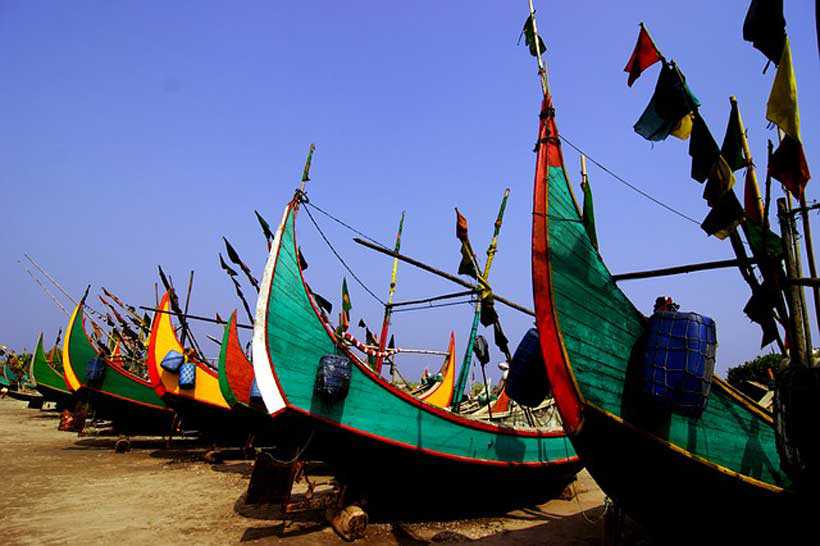Leading the financing for development agenda in Asia-Pacific

Image collected
Recent economic development in Bangladesh has been remarkable. Over the past decade, GDP per capita has almost tripled, reaching $1,700 in 2018. Annual GDP growth has averaged 6.5 percent and is forecast above 8 percent in 2019. Good progress is being made towards achieving the United Nations 2030 Agenda for Sustainable Development, particularly towards crucial goals such as ensuring everyone has access to clean water and sanitation and clean and affordable energy. Bangladesh’s economic dynamism has enabled the country to meet the criteria for graduation from Least Developed Country (LDC) status last year. If, as expected, the country meets the criteria again in 2021, Bangladesh will be recommended for graduation in 2024 by the United Nations General Assembly.
This phenomenal achievement brings new challenges. Graduation from LDC status means the loss of special treatment under the WTO. Bangladesh will lose preferential market access for its goods in many developed markets. It will no longer be able to tap dedicated development cooperation mechanisms such as the LDC Technology Bank, the LDC Fund for climate change financing or Aid-for-Trade. Yet the experience of two Asia-Pacific countries which have already graduated, Maldives and Samoa, demonstrates this challenge could be an opportunity. One for reforms to improve the business environment or to strengthen the financial system to support economic development beyond graduation.
Strengthening financing for development mechanisms is essential if countries are to achieve all the Sustainable Development Goals (SDG) by 2030. On its current trajectory our region will fall short of achieving all the SDGs. To accelerate progress, developing countries need to invest an additional US $1.5 trillion per year, or 5 percent of their combined GDP, if the SDGs are to be met. Yet there is much variation between countries. The LDCs in Asia and the Pacific are estimated to require an additional annual investment of 16 percent of the GDP, an investment which can only be achieved through a combination of innovative public and private sector financing.
To support countries mobilize the necessary additional resources, the United Nations has outlined a three-year Roadmap for Financing the 2030 Agenda for Sustainable Development with three main objectives. It aims to align global economic policies and financial systems with the 2030 Agenda; to enhance sustainable financing strategies and investments at regional and country levels; and to seize the potential of financial innovations, new technologies and digitalization to provide equitable access to finance. The development arm of the United Nations in our region, the Economic and Social Commission for Asia and the Pacific (ESCAP) is supporting several initiatives to deliver the roadmap’s objectives.
An Infrastructure Financing and Public Private Partnership Network for Asia and the Pacific has been established to facilitate the exchange of best practice on public private partnership (PPP) projects. In the future, the network will connect private investors with national PPP units and infrastructure projects in member countries. To help deepen capital markets, technical assistance is being provided to the Royal Government of Bhutan for the development of a sovereign bond market. Exchanges among regulators and private investors are being supported to foster enabling environments and to scale-up green, renewable energy and energy efficiency investments. Yet still more is needed.
The financing of micro, small and medium sized enterprises (MSMEs) is particularly crucial. These companies represent the great majority of enterprises, provide a high percentage of employment and make a significant contribution to GDP. By placing MSMEs at the heart of development strategies, countries can create opportunities for employment among large sections of the population, contribute to poverty reduction, improve income distribution and the dissemination of technical skills throughout the economy. MSMEs are known to provide opportunities for women’s economic empowerment, with positive knock-on impacts for families, societies and economies.
To enhance MSMEs access to financial services, digital financial services hold great promise. Here, Bangladesh is leading from the front. Through the Digital Bangladesh initiative, information and communication technology (ICT) is being leveraged to support socioeconomic change. Recent data shows the country’s 3G network now covers 94 percent of the population. Since 2017, thirteen Bangladeshi banks have provided agent banking services through an extensive network of 2,224 agents serving 870,000 account holders, including in remote rural areas. The use of mobile payments, particularly for utility payments, salary disbursements and person to person transactions continues to increase. The share of the population with mobile money accounts has exploded from 2.7% in 2014 to 21% in 2017.
The regional conference on ‘Financing for Inclusive and Sustainable Development: Exploring a New Financial Landscape for Asia-Pacific’ held in Dhaka this week will be working to build on these foundations and ensure our region rides the wave of technological innovation. Bangladesh has valuable experience to share. Working with the Bangladeshi authorities every step of the way, ESCAP is committed to seizing this opportunity to give the financing for development agenda the pace needed to support Bangladesh’s LDC graduation process and deliver sustainable growth in Asia and the Pacific.
Source: https://moderndiplomacy.eu
Previous Story
- On jobs, India behind Pak, Bangla, Afghan…
- BD economy may grow by 7.80pc in FY20:...
- WB projects 7.2 pc GDP growth for Bangladesh...
- Bangladesh: The economic miracle of the year
- Exhibiting the New Spirit in Bangladeshi Architecture
- Economic indicators contradict GDP growth figure: economist
- Bangladesh at a crossroads
- Conducive business climate key to double digit GDP...